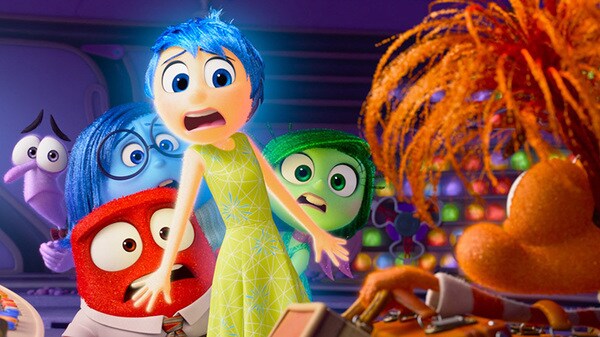“Incredibles 2” is a defense of family courage in difficult times
Incredibles 2
is the sequel to Pixar’s great animated film that was a total success in
2004. As expected, it quickly became one of the most watched movies and one
of the biggest box office so far in 2018, well over Jurassic World and
Mission impossible: The Fallout..
Despite the attempts that have been made over the years to introduce gender
ideology in this kind of movies, this film endures the challenge quite well
and it once again shows the family as the central element; where marriage
is between a man and a woman, where paternity is praised despite the
difficulties and where the family comes first in the order of priorities.
It also shows something that happens in real life, which is the
indoctrination through the mass media that is intended to change society.
Although it may contain some subtle messages that are not entirely
Christian, it has generally been recommended by leading Catholic film
critics for its defense of the family, precisely when it is most under
attack. One of these interesting reflections on the film was published by
Ignacio Montero Cotán, which has become viral in Spanish social networks.
Dissecting Incredibles 2 messages
Traditionally, history was seen mainly as the result of ideas, a way of
thinking. The historical events that took place were explained by the
mentality of an era, of a civilization. Marx inaugurated a new way of
interpreting history: in Marxism, events were not to be explained by a way
of thinking but as a result of class struggle; history was driven by a
struggle of interests in which one seeks to achieve and preserve a
privileged situation. According to the Marxist conception this abuse
(alienation) can be seen mainly in economics.
The Frankfurt school is a current of neo-Marxist thought which explains
that there are new forms of alienation that go beyond economics. For this
school, in an apparently free and democratic society, the power lies with
the one who can convince and persuade. For the Frankfurt school the way to
have control in a liberal and capitalist society is through the media,
consumer society and mass culture. According to this line of thought, those
who dominate the media will end up subtly imposing their way of thinking.
The intention of the Frankfurt School was not to seize the power or to
change society, but only to alert that there are new forms of manipulation
and therefore of domination. Although the Frankfurt School sought the
emancipation of people, the gender ideology, as other ideologies did in the
past, took the hint and filled the media, art and culture to gain followers
for their cause.
The very first cause to render a cartoon a success is to have… a great
villain. There are features of the Frankfurt school in the evil guy of the
new Disney movie. The character is literally called “Screenslaver” and
symbolizes someone who wants to seize power using the media: through the
screens he hypnotizes and indoctrinates people to change society.
The villain knows that public opinion is not the result of people’s
reflection and that, in order to gain power, he needs to control the media.
Public opinion is actually media opinion and this is precisely what he will
use to gain control.
So we have a villain who wants to seize power to impose his ideas. And
which are his ideas? Surprisingly for me, and this is the second point to
highlight in the film, the villain is a feminist and an individualist. So
we find ourselves in a fictional world where a villain wants to dominate
media opinion and culture in general, using thousands of screens to shape
minds and bombard them with feminist and individualistic propaganda… What
a macabre Disney! How did they come up with this world? What inspired them?
The villain seduces Elasticgirl with airs of grandeur and siren’s songs,
insinuating that she has played a secondary role until now, that she has
not had the role she deserves, that she has always been in the shadow of a
man who is worth less than she is, that she has invested her time and
effort in insignificant tasks such as raising her children, represented at
the beginning of the film as a scourge and a burden for personal
realization. Elasticgirl, flattered by the villain, ends up convincing
herself that the time has come to take command, to claim her place and to
take the spotlights.
And it is precisely at this moment when she accepts this individualistic,
progressive and feminist discourse, which advocates personal fulfilment at
work, recognition and independence in the face of her marriage and family,
that she becomes more vulnerable, becoming an instrument for the villain’s
interests.
Nothing more progressive than adopting a feminist discourse that advocates
the overcoming of the family, sometimes even with an anti-birth touch. that
puts personal fulfilment through work over family needs. Many authors have
pointed out that this apparent progress is the greatest achievement of
capitalism and liberalism, leading inexorably to individualism. Stuart Mill
claimed that capitalism could only become entrenched if the working class
voluntarily restricted its number. Even Pasolini warned that capitalism
would use sexual liberation (and I dare adding: gender ideology) to impose
its designs.
The fact is that lonely people, an individualistic society without family
commitments and priorities is most vulnerable to consumerism, and would be
easily driven by the media and mass culture. In such a scenario, citizens
would be much more permeable to the control of their thinking and less
contentious in the struggle for their rights.
And that’s what happens to Elasticgirl. Assuming that mainstream media
mentality that some will even confuse with a feminist claim, she becomes
just another puppet of the system.
The approach that Disney takes in Incredibles 2 is worth of consideration.
A society that is easily manipulated through the screens, a villain who
inoculates a way of thinking that is accepted as the fashion but that ends
up being a trap: who can save society from such control and decadence? The
family.
Why the family? Because it is an entity impervious to attempts at
manipulation, it is a shield against the continuous ideological
bombardment.
It is no accident that the villain tries to destroy the family in order to
seize power. Although at first it seems to be a scourge of losers, it turns
out that the family ends up revealing itself as the great hope, as the true
superheroes: those who renounce individualism and donate their lives and
time, those who end up being the real fighters against the system. Parents
struggling to raise their children have such defined priorities that they
do not share consumerism behavior and resist media manipulation. Their
priorities are so well established that no ideological bombardment will
succeed in shaping them because they have unquestionable premises. So the
strongest and most fierce opponents to political and ideological interests
are those who put family and personal fulfillment over work imperatives and
egotism. The film ends by showing that the real winners are those who
sacrifice their lives and not those who live for themselves.
I take my hat off to Disney’s new offering, for being brave, for going
against the tide, for giving us perspective and for being critical of its
time, something that is necessary but scarce today. I strongly recommend
that anyone reading this article watch this Disney homage to the family in
troubled times.
Originally published in the Spanish news web portal ReL (Religion and
Freedom)














